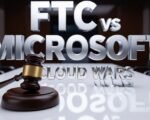The release of the new film “The Apprentice” has ignited a fierce culture-war battle, with former President Donald Trump voicing strong opposition. The controversy intensified as Trump labeled the film a “hatchet job” and “fake,” sparking heated exchanges and raising concerns about the impact of celebrity criticism on public discourse.
Trump’s Fiery Response to “The Apprentice” Film
Donald Trump’s reaction to the recent release of “The Apprentice” has been nothing short of explosive. In a social media post on Sunday, Trump vehemently criticized the filmmakers, referring to them as “HUMAN SCUM.” This strong language underscores the depth of his disapproval and sets the stage for a heated confrontation between Trump and the film’s creators.
The ex-president’s attempts to block the film’s release came just weeks before the US presidential election, adding a political dimension to the controversy. Trump’s timing suggests a strategic move to influence public perception ahead of the election, raising questions about the intersection of politics and entertainment.

Key Points of Trump’s Criticism:
- Labeling Filmmakers: Called those involved in making the film “HUMAN SCUM.”
- Timing: Efforts to block the film’s release occurred less than a month before the election.
- Accusations: Described the film as a “fake” and a “hatchet job” aimed at damaging his campaign.
Trump’s aggressive stance has not only intensified the debate surrounding the film but also highlighted the broader tensions between political figures and media portrayals.
The Apprentice Film’s Defense Against Trump
In response to Trump’s harsh criticism, the leads of “The Apprentice” have stood firm in defending the film’s integrity and historical accuracy. Sebastian Stan, who portrays Trump in the film, and Strong, who plays Roy Cohn, have publicly addressed the allegations, emphasizing their commitment to truthful storytelling.
During an interview with BBC Radio 4’s Today programme, Strong expressed his concerns about the escalating situation. “It wasn’t really until yesterday that I felt a sense of this feels slightly precarious and slightly dangerous and being in the crosshairs of the moment,” he remarked. This statement reflects the growing tension and the real-world implications of the film’s release.
Actors’ Statements:
- Sebastian Stan: Asserted the film’s historical accuracy and responsibility in its portrayal of Trump.
- Strong: Highlighted the personal threats and increased hostility following Trump’s comments.
- Gabe Sherman: The film’s writer faced targeted abuse, including death threats and anti-semitic hate, further escalating the situation.
The actors’ defense underscores the importance of artistic expression and the challenges faced when public figures react negatively to their portrayals.
The Impact of Online Threats and Hate
The backlash from Trump’s criticism has extended beyond social media posts to tangible threats against those involved in the film. The Bahrain Football Association’s experience with online abuse mirrors the challenges faced by the “The Apprentice” film’s creators, illustrating a disturbing trend of digital harassment in response to political and cultural disagreements.
Strong revealed that Trump’s derogatory remarks led to a surge in threats against the film’s writer, Gabe Sherman. “Yesterday [Sherman] was barraged with threats, death threats, anti-semitic hate,” Strong stated. This alarming rise in hostility highlights the dangerous consequences of polarizing rhetoric in the digital age.
Types of Online Abuse Reported:
- Death Threats: Direct threats to individuals involved in the film.
- Anti-Semitic Hate: Discriminatory and hateful language targeting specific groups.
- Impersonation Attacks: Creation of fake accounts to harass and spread misinformation.
The severity of these threats raises serious concerns about the safety and well-being of those involved in controversial projects, emphasizing the need for better protection against online harassment.
The Broader Implications for Culture Wars
The clash between Trump and the “The Apprentice” film is emblematic of the larger culture wars currently shaping American society. This conflict highlights the deep divisions and the intense emotions that political and cultural representations can evoke among different segments of the population.
Key Implications:
- Freedom of Expression: Balancing the right to create and portray controversial figures with the potential for backlash.
- Political Influence on Media: The impact of political figures’ opinions on the reception and success of artistic works.
- Safety and Harassment: Addressing the rise of online threats and ensuring the protection of creators and actors.
As these culture wars continue to evolve, the interaction between politics and entertainment will remain a contentious and highly influential aspect of public life.
Looking Ahead: The Future of “The Apprentice” and Political Portrayals
Despite the challenges, the release of “The Apprentice” continues to generate significant attention and discussion. The film’s ability to provoke strong reactions from influential figures like Trump demonstrates the powerful role that media plays in shaping public opinion and political narratives.
Future Considerations:
- Reception and Box Office Performance: How political backlash might affect the film’s success.
- Potential Censorship: The implications of attempts to block or discredit the film.
- Long-Term Impact: The lasting effects of this controversy on future political portrayals in media.
“The Apprentice” stands as a testament to the enduring influence of political figures in the realm of entertainment and the ongoing struggle to balance creative freedom with societal tensions.








